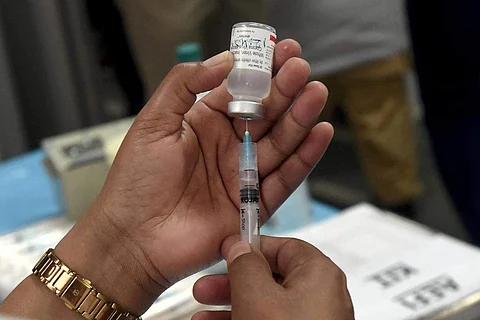

The World Health Organisation (WHO) on Tuesday said that vaccines, therapeutics and diagnostics "continue to be effective" against the B.1.617 variant of COVID-19.
"Based on what WHO knows so far as per discussions with experts globally, vaccines, therapeutics and diagnostics continue to be effective against B.1.617 variant (of COVID-19), which WHO has classified as a variant of concern," WHO Representative to India, Dr Roderico H Ofrin.
The variant first identified in India has been classified as a variant of global concern, with some preliminary studies showing that it spreads more easily, a senior WHO official informed on Monday.
The B.1.617 of the COVID-19 is the fourth variant to be designated as one of global concern that requires more tracking and analysis. The three others strains were first detected in the United Kingdom, South Africa and Brazil.
"B.1.617 virus variant that was first identified in India has been classified as a variant of interest by WHO," said Dr Maria Van Kerkhove, technical lead for COVID-19 at the WHO. She added that the WHO needs much more information about this B.1.617 variant and all of its sub-lineages.
In an interview, World Health Organisation (WHO) Chief Scientist Soumya Swaminathan on Monday (local time) said studies were underway in India to examine the variant's transmissibility, the severity of the disease it causes and the response of antibodies in people who have been vaccinated.
The WHO scientist called for more genome sequencing in India to get a full picture of what is going on in different parts of the country while saying that it should be hand-in-hand with clinical epidemiological studies.
"Sequencing does not give you the full picture. You do not know whether it is more transmissible, whether it causes more severe disease or what impact it has on your diagnostics," she said.
